Paloma Aba Garrote, Director of CINEA: ‘Bringing Europe closer to Brest'
- Brest, 20 February 2025 - Chaired by Michel Gourtay, Vice-President of Brest Métropole and President of Technopôle Brest-Iroise, the Foresight Council of the Campus Mondial de la Mer welcomed Paloma Aba Garrote, Director of the European Executive Agency for Climate, Infrastructure and the Environment (CINEA). The meeting was marked by a rich exchange of views, a key stage in a three-day programme of meetings with maritime players from our region. Paloma, from Galicia, gave us a friendly interview in French.
CINEA and the Campus Mondial de la mer: common challenges
‘CINEA is the executive agency set up by the Commission to implement projects linked to the Green Deal for Europe,’ explains Paloma. The agency has a budget of €65 billion to finance around 4,000 projects between 2021 and 2027.
Although multi-thematic, CINEA is resolutely focused on the sea. This is an intrinsic characteristic when it comes to transport, infrastructure and climate. ‘Ports and maritime transport are two major focuses of our programmes, illustrated by subjects such as connections with the countries behind us, improving and modernising infrastructures, decarbonisation and alternative fuels,’ explains Paloma.
Given their respective themes, CINEA and the Campus Mondial de la Mer are closely linked. The proof: 34 projects involving Campus players have already benefited from European funding.
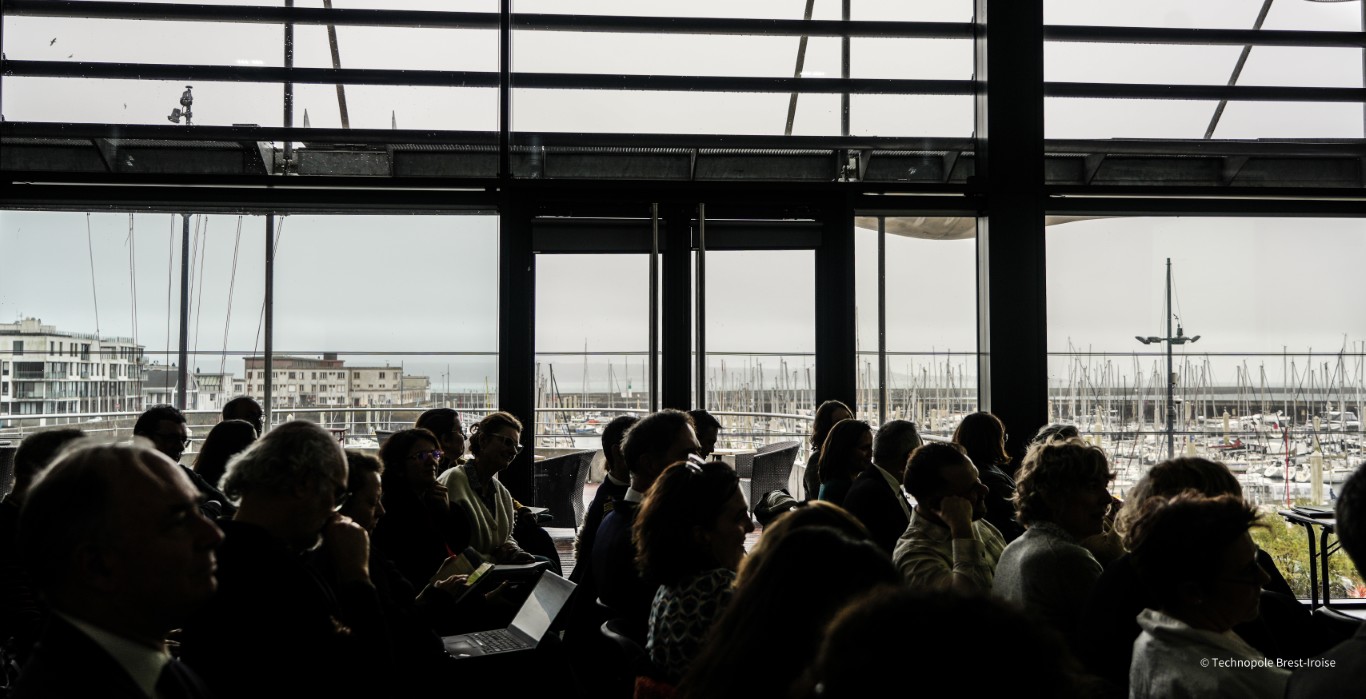
Credit: Technopôle Brest-Iroise The post-2027 era under the banner of innovation
While the Campus is working on its new 2025-2030 strategy, what about European programming for 2028? The Foresight Council thought it worth asking.
‘The Commission has just presented its guidelines. Innovation will be one of the priorities, with a dedicated competitiveness fund. There will be fewer programmes financed by the European budget, but the trend will be towards consolidation, greater flexibility and simplification’. More details will be communicated from July 2025 [find out more]. There will then be a period of consultation between the Commission, Parliament and the Council to harmonise the views of the Member States. This trialogue will last two years.
There will also be a public consultation open until 6 May 2025, to which the Campus community is invited to contribute.
As highlighted in the Draghi report The Future of European Competitiveness, innovation is an essential value for a competitive, low-carbon and climate-neutral Europe (read the report).
‘The Campus has the capacity to connect academics, researchers and businesses to innovate. The people involved in the Campus are doing an excellent job. They are very committed and the projects we fund are very well managed. I encourage them to continue and to apply for our programmes.'
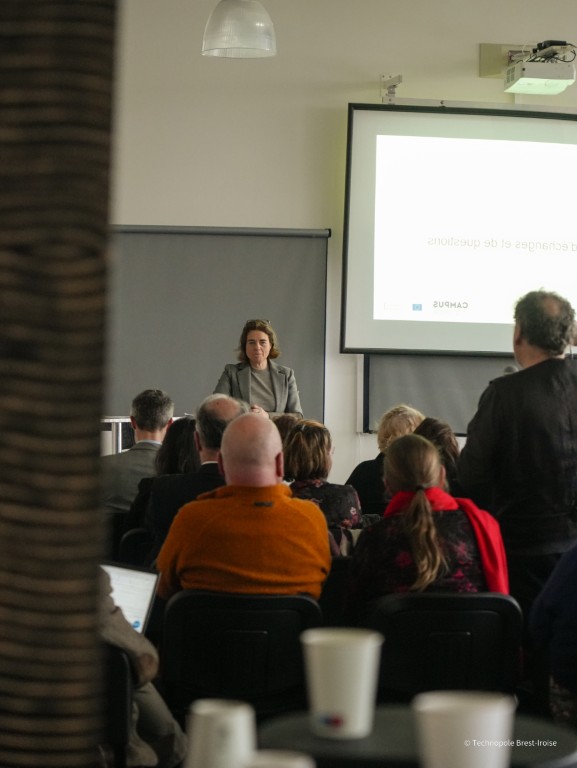
Credit: Technopôle Brest-Iroise Any advice on how to get to grips with Europe?
‘Take part in information days and themed conferences. Contact the National Contact Points. Come to Brussels to meet the stakeholders’.
In fact, it was during a mission to acculturate people to Europe that the Campus discovered CINEA.
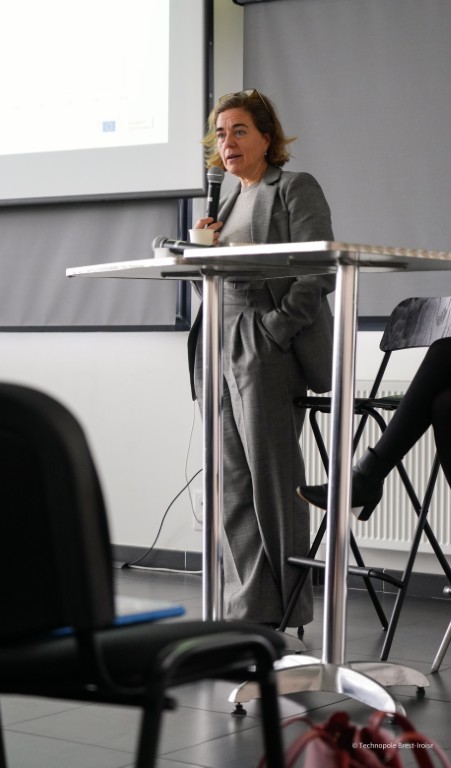
Credit: Technopôle Brest-Iroise Paloma Aba Garrote, 100% European
‘When I arrived in Brussels, I discovered the importance of the European Commission. I took the competition to become a civil servant’, says Paloma.
That was in 2002. She began her European career as head of sector in the Directorate-General for Enlargement, in the middle of negotiations with the new candidate countries. In 2004, Cyprus, Malta, the Czech Republic, Estonia, Hungary, Latvia, Lithuania, Poland, Slovakia and Slovenia joined the EU. In 2007, they were joined by Bulgaria and Romania.
In this Europe of 27, Paloma is responsible for managing project funding budgets. In 2007, she became Head of Unit in the Directorate-General for Transport and Energy (DG Mobility and Transport / DG Energy).She then continued her career under the blue flag and joined CINEA in 2017. She is now its Director.
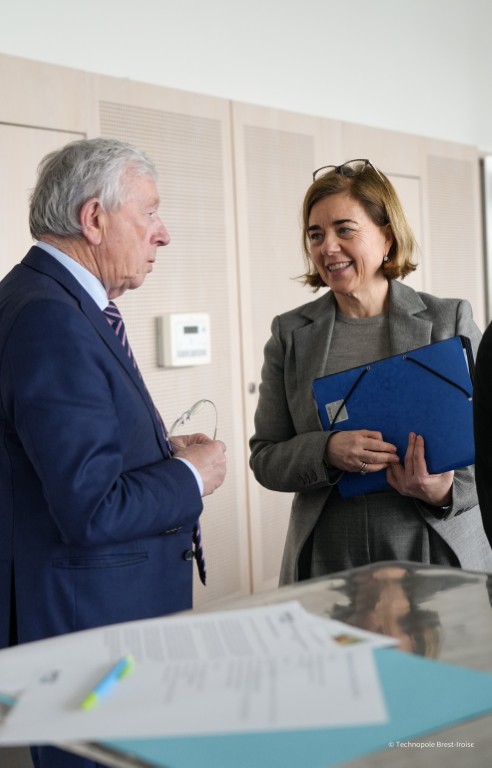
Credit: Technopôle Brest-Iroise Next event
CINEA and the Campus mondial de la mer team will be present at the European Maritime Days (21-23 May 2025, Cork)
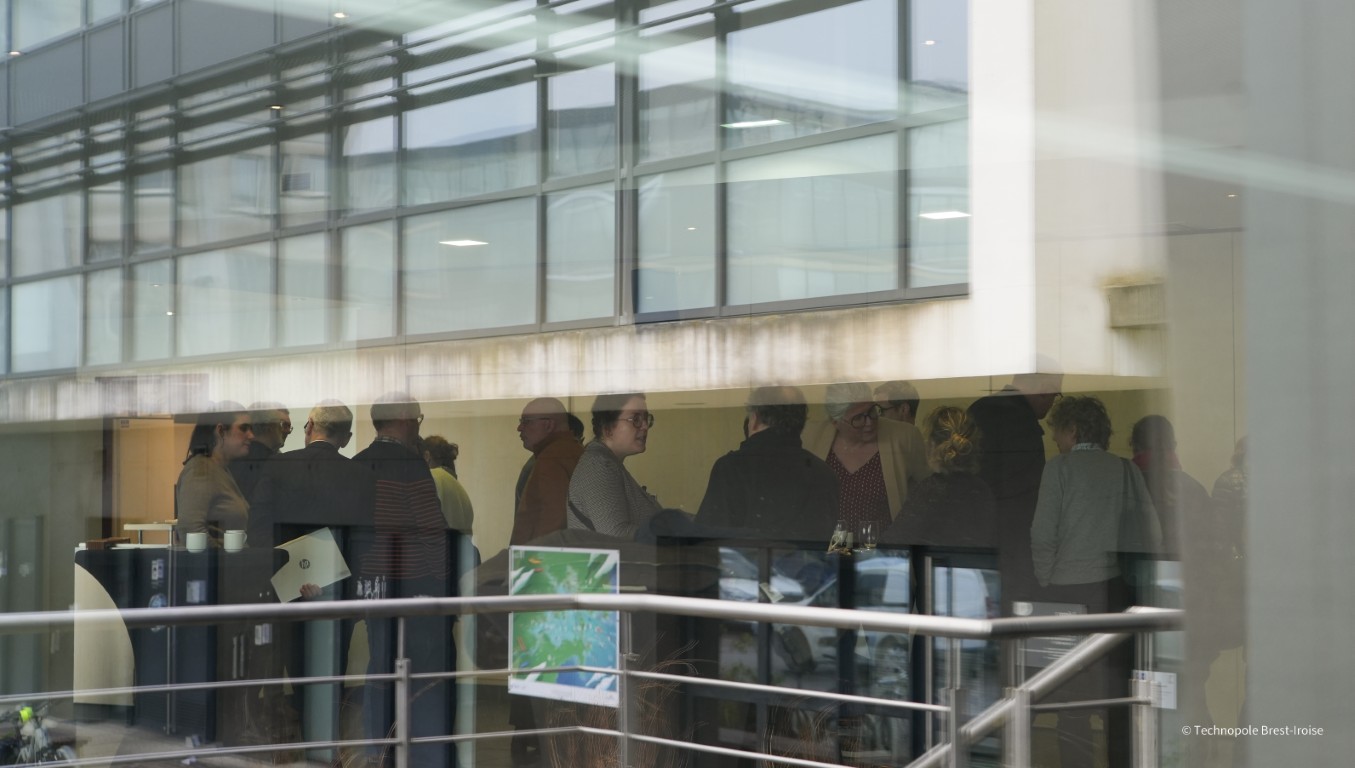
Credit: Technopôle Brest-Iroise The Campus team would like to thank Brest Métropole, France Energies Marines, Ifremer, the Pôle Mer Bretagne Atlantique, the Port of Brest, RTE, Shom and UBO for their contribution to the programme of visits.
- Published on 03/03/2025




